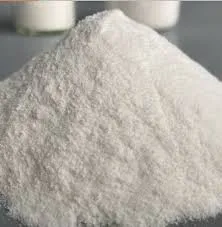
Oct . 13, 2024 06:46 Back to list
hydroxyethylcellulose uses
Hydroxyethylcellulose (HEC) is a non-ionic, water-soluble polymer derived from cellulose, which has gained widespread acceptance in various industries due to its unique properties and versatility. As a modified form of cellulose, HEC retains many of the characteristics of its parent compound while offering enhanced capabilities that make it invaluable in applications ranging from food to pharmaceuticals.
.
In the pharmaceutical industry, HEC serves multiple purposes. It is often employed as an excipient in the formulation of tablets and capsules, where it enhances the flow properties of powders, ensuring uniformity in drug dosage. Additionally, HEC is used in controlled-release formulations, where it helps to regulate the release of active ingredients, thereby improving therapeutic outcomes. Its biocompatibility also makes it suitable for use in ophthalmic solutions and wound dressings, providing a moisture-retentive barrier that promotes healing.
hydroxyethylcellulose uses

The food industry also benefits from the inclusion of hydroxyethylcellulose. As a food additive, HEC acts as a thickener, stabilizer, and emulsifier, helping to improve the texture and mouthfeel of various food products. It is particularly useful in gluten-free baking, where it substitutes some of the functional properties of gluten, contributing to better dough consistency and overall product quality.
Another noteworthy application of HEC is in the construction industry, where it serves as a performance enhancer in cement and plaster formulations. When added to these materials, HEC improves workability, water retention, and adhesion, resulting in stronger and more durable constructions.
In summary, hydroxyethylcellulose’s versatile nature makes it an essential ingredient across various sectors. Its roles as a thickener, stabilizer, and emulsifier highlight its importance in cosmetics, pharmaceuticals, food, and construction. With ongoing research into its applications and properties, HEC continues to play a crucial role in product innovation, catering to the ever-evolving needs of different industries while promoting sustainability and safety. As manufacturers and researchers explore new uses for this remarkable polymer, hydroxyethylcellulose is set to remain a staple in formulating high-performance products for years to come.
-
Versatile Hpmc Uses in Different Industries
NewsJun.19,2025
-
Redispersible Powder's Role in Enhancing Durability of Construction Products
NewsJun.19,2025
-
Hydroxyethyl Cellulose Applications Driving Green Industrial Processes
NewsJun.19,2025
-
Exploring Different Redispersible Polymer Powder
NewsJun.19,2025
-
Choosing the Right Mortar Bonding Agent
NewsJun.19,2025
-
Applications and Significance of China Hpmc in Modern Industries
NewsJun.19,2025







